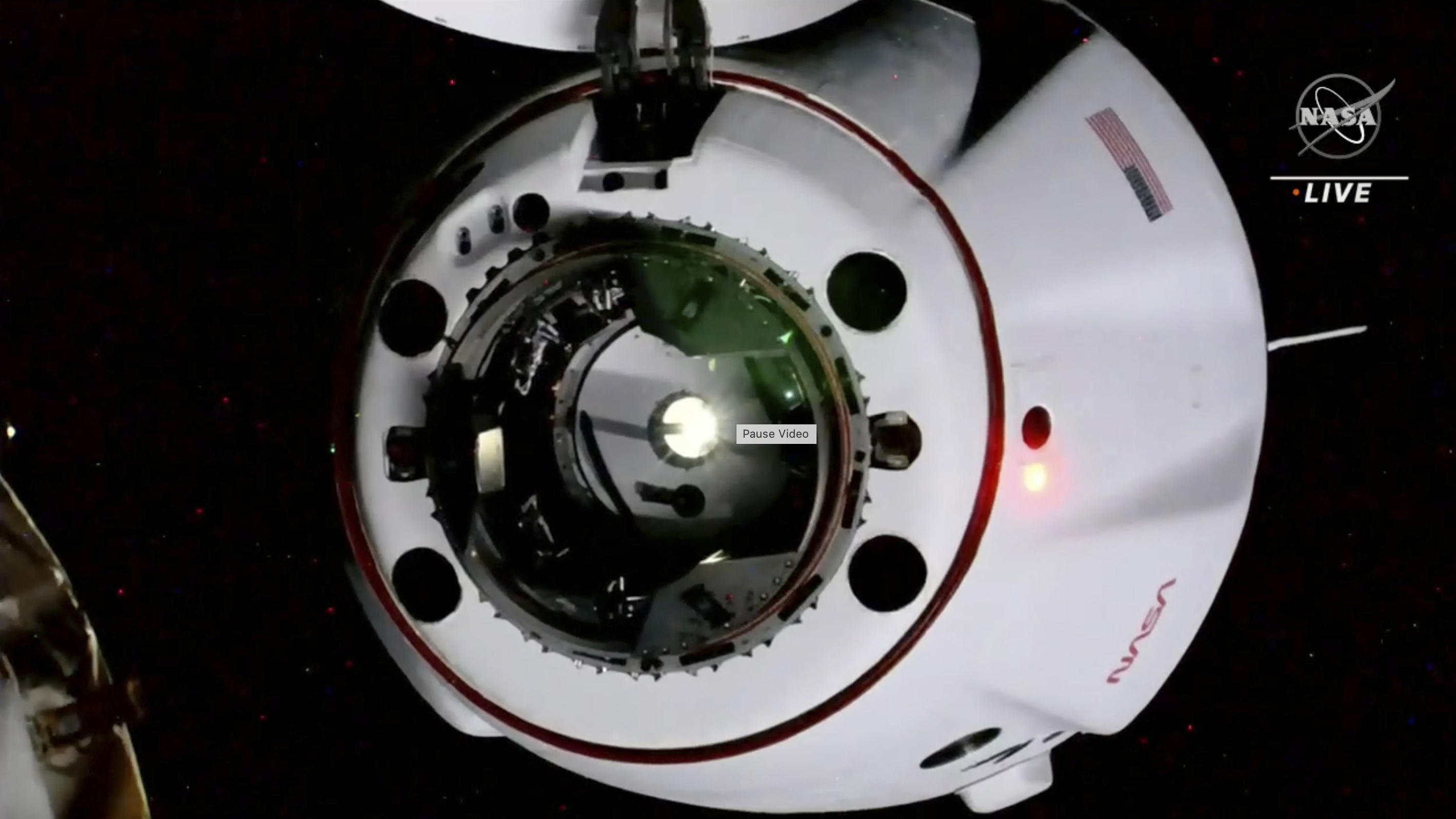Musk-Trump Split Threatens NASA and Pentagon Programs

Elon Musk’s threat, which he later retracted, to cut off NASA’s use of SpaceX’s Dragon spacecraft would be a huge blow to NASA, depriving the space agency of the only American vehicle capable of transporting astronauts to the International Space Station and dramatically changing how NASA would access the $100 billion orbiting laboratory.
The threat, posted on X , came during an escalating fight between President Donald Trump and the wealthiest man in the world , after Trump had threatened to cancel all of Musk’s company’s federal contracts. Given SpaceX’s importance to multiple federal programs, severing those relationships could leave NASA as well as the Pentagon and intelligence agencies in a lurch.
Several hours after making the threat, Musk relented, saying in response to a post on X that he should cool off and reconsider: “Ok, we won’t decommission Dragon.”
Over the years, SpaceX has become a vital contractor , launching sensitive national security payloads such as satellites that provide missile warning, battlefield communication and guide munitions to precise targets.
“The easiest way to save money in our Budget, Billions and Billions of Dollars, is to terminate Elon’s Governmental Subsidies and Contracts,” Trump wrote on his social media network Truth Social. “I was always surprised that Biden didn’t do it!”
Musk soon punched back, writing that as a result, SpaceX “will begin decommissioning its Dragon spacecraft immediately.” If SpaceX did so, it would leave NASA without a way to fly astronauts to the ISS from American soil. NASA does, however, occasionally partner with Russia, which transports astronauts to the space station on its Soyuz spacecraft.
It was not clear whether SpaceX’s contract with NASA would allow Musk to suddenly cut off use of the Dragon capsule, which NASA also uses to fly cargo and supplies to the station.
In a statement, Bethany Stevens, NASA’s press secretary, did not address how NASA would continue to fly its astronauts to the ISS without SpaceX, writing only that, “NASA will continue to execute upon the President’s vision for the fulfillment of space. We will continue to work with our industry partners to ensure the President’s objectives in space are met.”
Musk and SpaceX did not respond to requests for comment.
In 2014, NASA awarded contracts to both SpaceX and Boeing to transport crews to the ISS. SpaceX has been flying astronauts there since 2020. Boeing, however, has had repeated challenges with its Starliner spacecraft, and its first flight with astronauts on board went so awry that NASA ultimately decided to fly the crew home with SpaceX.
Since Boeing’s problems last summer, the company and NASA have said little about the progress the company is making to fix the problems or when Starliner might be available to attempt to fly crews again.
Dragon is not the only SpaceX vehicle NASA relies on. The space agency is investing $4 billion into the development of SpaceX’s next-generation rocket, known as Starship, which it intends to use to land astronauts on the moon as part of its Artemis program.
The Space Force recently awarded SpaceX nearly $6 billion in launch contracts, more than the United Launch Alliance, which received $5.4 billion and Blue Origin, which received $2.4 billion. The Space Force has also expressed interest in using SpaceX’s next-generation Starship vehicle
For years, space industry officials have warned that the government desperately needed more providers so that it wouldn’t be so dependent on a single company. But while SpaceX soared, launching its Falcon 9 rocket more than any other in history by a wide margin, its competitors, including Jeff Bezos’s Blue Origin, failed to keep up. As a result, SpaceX continued to win government contract after contract, deepening its ties to the federal bureaucracy. (Bezos owns The Washington Post.)
Over the weekend, Trump announced what has been seen as another shot at Musk, his onetime ally and adviser, when he pulled the nomination of Jared Isaacman to be the NASA administrator. Isaacman, a billionaire entrepreneur, had flown to space as a private citizen twice with SpaceX, and Musk had championed his nomination. In a podcast interview, Isaacman recently suggested that his ties to Musk may have cost him the job.
“There were some people that had some axes to grind, I guess, and I was a good, visible target,” he said.
In another sign of how the rift between Trump and Musk is affecting national policy, space officials have said that the White House is likely to accept significant changes to the NASA budget that could adversely affect SpaceX.
Initially, the White House’s proposed budget for NASA called for the cancellation of the notoriously expensive and behind-schedule Space Launch System, as well as the Orion spacecraft. Cutting the rocket and capsule that would have been used to send astronauts to the moon could have been an enormous boon for SpaceX, as well as other commercial companies seeking to provide transportation services for NASA.
The Senate Commerce Committee, however, restored funding for both programs, including $4.1 billion for SLS, in what initially was expected to spark a fight between Congress and the White House. But in part because of the rift between Trump and Musk, the White House is likely to approve the changes.
Post a Comment